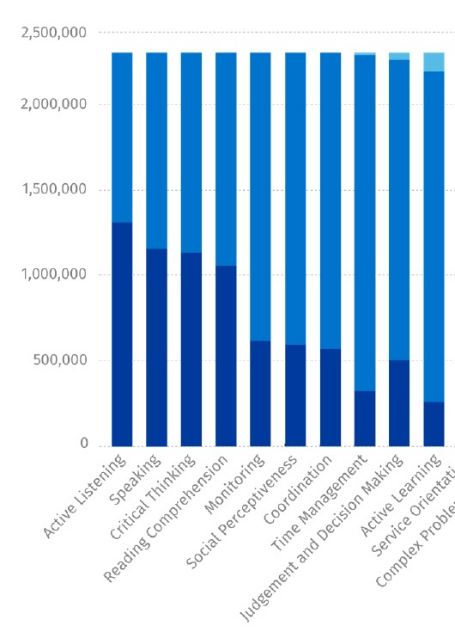4. What Skills?
4.1. Humans Wanted
In 2018, the Royal Bank of Canada issued a report, called ‘Humans Wanted.’ This was based on an analysis of big data derived from job postings over a 12 month period on LinkedIn, in which the actual skills being requested by employers were identified and analyzed, and from which an analysis of the demand for different types of labor were conducted.
The main conclusion of the report was that there will be plenty of jobs in the future, but they will require different skills from those generally required at the present. In particular, many of the new skills needed will be what is perhaps confusingly called soft skills, such as attentive listening, critical thinking, digital fluency, active learning, etc. (confusing, because these ‘soft skills’ are often as difficult to cultivate as ‘hard skills’.) These are skills that automation and AI cannot easily replicate or replace but which will be needed in the new digital economy. The Royal Bank identified the following as key skills that will be in high demand between 2018 and 2023 (Dark blue = Very important; Lighter blue = Important).

Two of the main conclusions from the Royal Bank report were as follows:
- Canada’s education system, training programs, and labor market initiatives are inadequately designed to help Canadian youth navigate this new skills economy.
- Canadian employers are generally not prepared, through hiring, training or retraining, to recruit and develop the skills needed to make their organizations more competitive in a digital economy.
